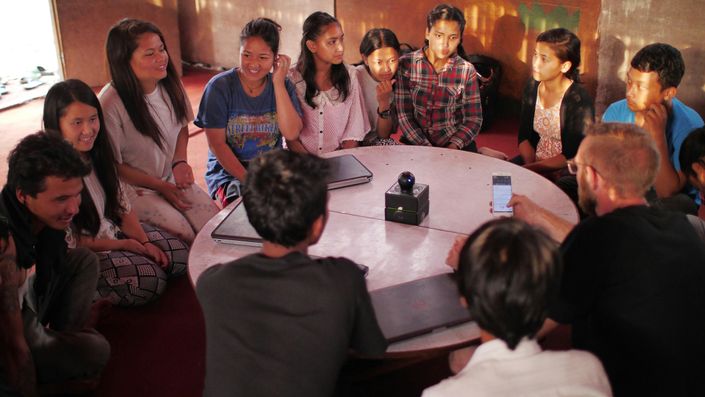
Community Engagement through Focus Group Discussions
Gather meaningful insights and amplify community voices through culturally sensitive facilitation techniques. Online certificate course.
Self-Study Certificate Course
Start: Immediate Access
Time: Around 10 hours to complete
When Community Voices Go Unheard
Focus groups connect development initiatives directly with community priorities. When we listen actively and respond to local insights, projects become more effective and sustainable. Yet when focus groups are poorly planned or facilitated, organizations face:
- Interventions that miss the mark because they're based on assumptions rather than community realities
- Wasted resources on solutions that don't address local priorities or cultural contexts
- Loss of community trust
- Sustainability challenges when projects lack community ownership from the start
- Missed opportunities to leverage local knowledge and innovative solutions
This practical training transforms how you engage communities through focus group discussions. Through effective focus group facilitation, you can:
- Design interventions that fully reflect community needs and aspirations
- Build trust and ownership for sustainability
- Generate rich qualitative data that complements quantitative findings
- Create spaces where marginalized voices are heard
- Transform community insights into concrete project improvements
How You'll Learn
This self-paced course combines video lessons, practical exercises, and assessments:
- Video presentations with downloadable transcripts and handouts
- Practical templates and tasks for immediate application
- Reflection exercises to adapt concepts to your context
- End-of-module knowledge checks
- Certificate upon completion
Course developed and presented by Neil Kendrick, founder of ELD Impact, with 25+ years of experience training humanitarian professionals across 20+ countries
Program Overview
Click any module to see content
- Getting Started
- Pre-Course Self-Assessment: Rate Your Current Skills
- When is a Focus Group Useful?
- Focus Group Questions in Emergency Response
- Planning a Focus Group in Development Contexts
- Gaining Insights from Communities
- Differences between Focus Groups & Regular Groups
- Progress Assessment
- Reflection & Application
- The Role of the Facilitator
- Community-centric Planning
- Utilizing Focus Groups for Community Centered Solutions
- Holistic Understanding & Qualitative Insights
- Progress Assessment
- Reflection & Application
- Optimizing Resources
- Including Marginalized Voices
- Integrating Insights into Planning & Implementation
- Using FGDs to Assess Impact & Triangulate Data
- Using FGDs to Navigate Complexity
- Progress Assessment
- Reflection & Application
- Focus Group Planning and Integration into Disaster Response
- Question Design & Informed Decision-making
- Focus Group Session Design
- Aligning Focus Group Goals with Broader Development Goals
- Using a Multi-method Approach
- Strategies for Inclusive Participant Representation
- Aligning Incentives with Community Values
- Progress Assessment
- Reflection & Application
- Strategic Questioning
- Community-centric Approach
- Strategies for Cultural Sensitivity
- Ensuring Representation
- Progress Assessment
- Reflection & Application
- Documentation of Contextual Insights
- Holistic Data Analysis
- Community Feedback Mechanisms
- Incorporating Insights into Development Plans
- Progress Assessment
- Reflection & Application
- Final Self-Assessment: Reflect on Your Progress
- Your Focus Group Discussion Action Plan
- Course Discussion Forum
- Your Next Steps
Want to try before purchasing? Access this course and 9 others in the Academy. Individual subscriptions $29/month—cancel anytime. Go to Academy →
